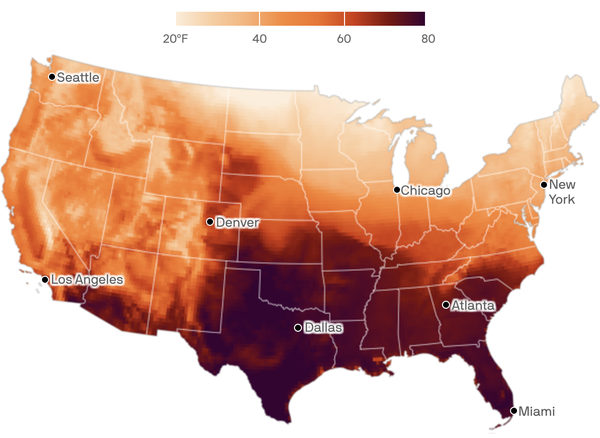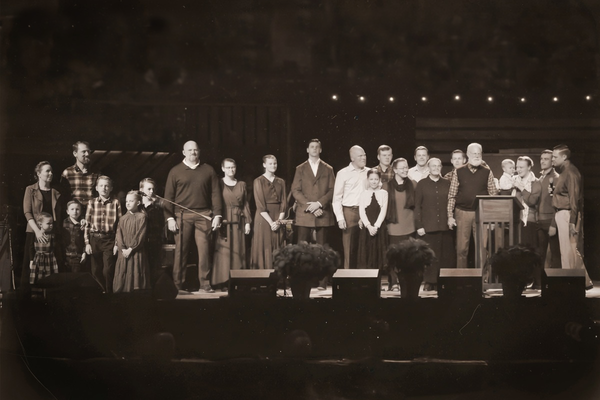Dairy Days and Disaster
It all started that cold January morning when my alarm clock rattled me out of blissful dreams. I tumbled down from my top bunk, pulled on my trousers, buttoned my shirt and grabbed my gray felt cowboy hat—stained, crumpled, and missing a corner—from beneath my brother’s stack of hats. It was Tuesda

Howdy, y’all!
I hope everyone’s been staying warm through this January cold snap. One of our favorite family pastimes on cold evenings is reading stories to each other. Sometimes I even read my kids stories from my own childhood—tales of growing up and living a full and vibrant life on the farm.
This January weather reminded me of one such story: an account of a particularly cold milking experience when I was 12 years old. I thought I’d share it with you.
Fair warning—this week’s letter isn’t a profound spiritual insight. Nope, no hidden metaphors or Bible lessons here. Just a vivid slice of real life that makes my kids and me laugh every time we remember it. I hope it brings a smile to your face and brightens your spirits, too.
Enjoy!
Dairy Days and Disaster
I froze. I wanted to scream. But I didn’t dare open my mouth. I was speckled from head to toe in soupy green.
It all started that cold January morning when my alarm clock rattled me out of blissful dreams. I tumbled down from my top bunk, pulled on my trousers, buttoned my shirt and grabbed my gray felt cowboy hat—stained, crumpled, and missing a corner—from beneath my brother’s stack of hats. It was Tuesday: my morning to milk.
The wind cut sharp as I stepped outside, pulling my collar tight against the chill. The screen door of the milk room slammed behind me as I reached for the stainless steel pails. They were stuck to the shelf, frozen in a thin ring of icy water. I banged them loose, turned on the hot water and waited forever for it to warm up.
Wash with soap. Rinse. Bleach. Rinse again. The process had been drilled into me a thousand times. It felt unnecessary, especially on mornings like this. The buckets had been washed the night before; no one had touched them since. And really, wasn’t it cold enough to kill any bacteria anyway? My mind raced, dreaming of shortcuts I was sure the adults hadn’t considered.
By the time I finished scrubbing the last bucket, I was glancing down the road, hoping my milking partner would show up. The road stayed empty. Irritated, I slammed the screen door harder than usual and trudged down the dirt road toward the dairy paddock.
The cold bit at my ears, and I tugged my hat lower. I should’ve worn a stocking cap, but the look? That wouldn’t do. As I rounded the orchard, the sun broke through the frost, casting the fields in sparkling light. A thunder of hoofbeats made me turn.
A herd of draft horses and Quarter horses burst across the field, tails flying like banners in the crisp morning air. They galloped toward the fence as if they’d plow right through it, then skidded to a halt, turned on their heels, and bolted the other way. They bucked and kicked, swinging their hips with such force that a symphony of flatulence erupted into the cold air, misting like steam from a locomotive.
I cracked up, my laughter ringing through the empty field. But as I approached the dairy paddock, my mood shifted.
“Here, cows! H-e-e-e-r-e, cows!” I called.
The Brown Swiss and Jersey cows stirred, groaning to their feet. They staggered a moment, eyeing me warily before deciding it really was milking time. I swung the gate open, stepping aside as they lumbered through, their heavy udders swinging beneath them. My stomach sank.
The cows had been warming their udders the only way they knew how—by plopping them squarely into fresh, steaming manure piles. Cleaning those teats was going to be extra fun. A twelve-year-old boy doesn’t rationalize his resentment; he just feels it.
By the time I had the cows locked into the stanchions and ready to milk, my partner finally arrived. Armando, the ranch foreman, rolled up on his ancient bicycle, bundled like a burrito in a brown Carhartt coat and mismatched layers. He greeted me with a slow, deliberate, “Good morning,” his Spanish accent thick.
I liked Armando well enough, but I knew what his arrival meant: no shortcuts. Armando had a way of insisting on every meticulous step of the process, no matter how tedious or cold it was.
“I already cleaned the udders,” I stammered, hoping to avoid Armando’s thoroughness.
He tilted his head, unconvinced. “You did, huh?”
He grabbed the cleaning rag, swirled it in the bucket of sudsy water and got to work. Not just the teats, but the entire bag, all the way up under the cow’s tail.
“You can’t be too careful with manure,” he said. “If it falls into the bucket, all your work is wasted. Is that what you want? To throw away the milk you worked so hard for?”
Worked hard for? I wasn’t working for the milk—I was working to be done.
But Armando had made his point. I gritted my teeth and followed his lead, scrubbing udders until they shone. Finally, I could sit on my stool, press my head against the cow’s warm side and start milking. The rhythmic streams of milk hitting the pail were almost enough to make me forget the biting wind outside.
Almost.
“Asi,” Armando called, his voice calm but insistent.
“Yes sir?”
“We need your help over here.”
I groaned. Honeydew, one of our more notorious cows, was about to unload a steaming pile mid-milking. It happened when the cows got too comfortable, their breakfast settling in their guts. I reached for the shovel, dreading what came next.
“Sometimes,” Armando began, pointing to a red bucket of sawdust, “it’s better to use—”
“I’ve got it,” I cut him off, grabbing the shovel. I wasn’t about to use his bucket method, which put your hands way too close to the action.
I positioned myself directly behind the cow, shovel ready. Armando raised an eyebrow. “You may want to stand to the side,” he advised.
“I’ve got it,” I repeated, confident that I didn’t need his so-called wisdom.
The cow lifted her tail. I braced myself, watching the green, pancake-batter-like manure flow steadily into the shovel.
Then it happened.
Honeydew coughed.
A deep, explosive cough that sent manure rocketing out of her like a pressurized cannon.
The first blast hit me square in the chest. I froze, stunned. Armando tried not to laugh, but it was no use. His whole body jiggled as he wheezed and gasped for air, laughing harder than I’d ever seen him.
“Move, Asi!” he choked out between fits of laughter.
But I was too late. Honeydew coughed again, doubling down on her assault. By the time she was done, I was covered head to toe in green. Not a square inch of me was spared.
Armando wiped his eyes, still laughing. “Oh my,” he said, utterly insincere, “I’m so sorry.”
“I’m done!” I shouted, storming toward the barn door.
“No, you’re not,” Armando called after me. “We don’t start a job we don’t finish.”
Defeated, I trudged to the summer kitchen, filled a red bucket with soapy water, and began scrubbing myself down. The rag smeared the manure more than it cleaned it, but it was better than nothing.
By the time I made it home, I was stiff from the cold, reeked of manure, and my shirt and jeans were permanently stained green. Yet, as I stood under the hot streams of the shower, something surprising happened. I started to smile.
And then I laughed.
Even now, I can’t help but laugh. Because if there’s one thing I learned that morning, it’s this: no matter how bad things seem, they can always get worse. And sometimes, all you can do is laugh.





